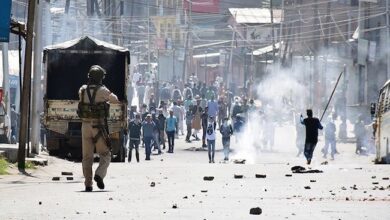Yemen: a strategy of defeat

By Kelly Alkhouli
The failure of the Saudi-led coalition, coupled with the UN’s habitual ineptitude, has plunged Yemen into another quagmire, with the US and UK blindly following Saudi Arabia. What was suppose to be a short intervention to restore a supposedly legitimate government against a radical islamist Iranian proxy has quickly turned into a five year civil war, rendering Yemen into the worst humanitarian crisis in the world. The spread of coronavirus will only deteriorate an already dire situation.
We attribute the main source of conflict to stem from the Houthi rebellion but in reality Yemen was already in a fragile political state. When Yemenis marched in 2011, they protested not only against Ali Abdullah Saleh, but also against a corrupt and oppressive system that impoverished the country. Saleh’s forced departure in 2012 could have represented a glimmer of hope for Yemen had he not been replaced by his deputy of almost 20 years, Abdrabbuh Mansur Hadi. Even though Hadi served mainly as a decorative ornament under Saleh, he remained a deeply despised remnant of the regime complicit in the Yemeni’s suffering. The only source of legitimacy his government has comes from the 2012 election, where he unsurprisingly won 100% of the votes by being the sole candidate allowed to run.
Predictably, the transitional period failed to adequately address the issues that plagued Yemen for decades, so in the spirit of continuing their democratic success the UN decided to extend Hadi’s term to an unspecified future date. Sensing the government’s weakness, the Houthis took advantage of this opportunity to seize their heartland, Saada, and expand until they eventually took over the capital, Sanaa. While the Houthis are supported by Iran, and share aligned interests with them, they cannot be considered as a mere proxy for Iran. They’re a largely independent movement that’s emerged as a result of exacerbated religious tensions, a rise of salafism and decades of marginalization and persecution.
The Saudi-led military intervention that followed in response to the rebellion has only managed to escalate the conflict into a civil war. Because Yemen imported 90% of its food and medical supplies and 70% of its fuel, the blockade imposed by the Saudi-led coalition further aggravated the humanitarian crisis. Now, 80% of the population require humanitarian aid, 10 million are on the brink of starvation and Yemen now has the highest rate of child malnutrition. Both sides are responsible for this humanitarian catastrophe and both sides have committed countless violations of human rights. Even the areas that are suppose to be under the control of the coalition face appalling conditions and are in reality under the control of islamist militias.
What’s even more troubling is the rise in influence of Ali Mohsen al-Ahmar, Hadi’s second-in-command, who coincidentally was also second in influence under Saleh’s reign. Ali Mohsen is a man who could be best described as a pseudo terrorist masquerading as a politician.
He’s responsible for leading the fight against the Houthis during 2004-2011 and for cultivating Islamist militia groups – some of which later became part of Al-Qaeda in the Arabian Peninsula (AQAP) – in the south of Yemen to oppress the separatists after the first civil war in 1994. Thanks to him, the government’s strongest support within Yemen is the Islah party (Muslim Brotherhood in Yemen) and Islamist militias, many of which are closely tied to the AQAP.
Yet the UN, in fear of antagonizing Saudi Arabia, has decided to unconditionally support the Hadi government and coalition through their Resolution 2216, passed in 2015, which essentially demands the complete surrender of the Houthis. How can we hope for a political solution if the mediator is too afraid to assume a neutral position? At this stage the UN has become an obsolete force comprised of recycled and irrelevant diplomats who are at the end of their career.
The war gets further complicated when we factor in the separatists in the south. After nearly three years of intermittent clashes with government forces, the conflict escalated recently with the STC, backed by the UAE, declaring self-rule. Even if the separatists and the Hadi government reach a pact, it’s bound to be temporary. Their deep hatred for Ali Mohsen and his salafist network makes it unlikely that they’ll renounce their decades-long aspirations for independence.
We’re ultimately left with a deeply divided country in chaos, a salafist who’s a heartbeat away from becoming president and an alleged leader who hides in Saudi Arabia, where MBS can make sure he doesn’t stray away too far from home. By oversimplifying this war as a fight against Iranian expansion, we’ve committed ourselves into providing our unconditional support to a Saudi puppet and a salafist.
Even if, through some miracle, the Houthis were to comply to the UN resolution and the separatists renounced their long-held desire for autonomy, Yemen would still suffer under a new regime, only this time with a much more fundamentalist agenda.
Even a victory would be a defeat.
Kelly Alkhouli is a political consultant and the Director of international relations at the Center of Political and Foreign Affairs (CPFA).




